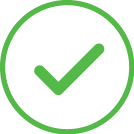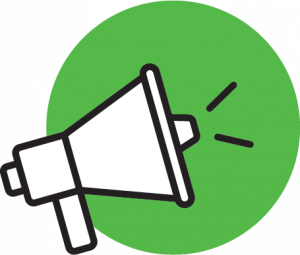No matter what life stage you’re in, you’re most likely putting money aside toward a goal. That could be to buy your first home, prepare for retirement or take your family on that big international trip you’ve been dreaming of. Whatever your financial initiatives are, you want your funds to be in the most lucrative spot possible, helping you save as much as you can.
That’s where a money market account can come in handy. This type of savings account is great for building up your nest egg, without prohibiting access to your funds. Want to learn more? Continue reading!
What Is a Money Market Account?
A money market account is a type of savings account offered by banks and credit unions that typically offers higher interest rates than regular savings accounts. It combines some features of both savings and checking accounts, making it a flexible option for those looking to grow their money while still maintaining access to it. Think of it as a treasure trove that consistently grows without you having to bury it deep in the sand and mark it with an X.
Key Features of a Money Market Account: What Sets It Apart?
So, what makes this type of savings account unique from other options? Here are the defining traits that make it an appealing choice:
 Higher Interest Rates Than Standard Savings Accounts
Higher Interest Rates Than Standard Savings Accounts
Many savings accounts have some form of interest-building aspect. However, money market rates tend to be more competitive than traditional ones — allowing your money to grow faster, especially as your balance increases.
 Check-Writing Abilities and Debit Card Access
Check-Writing Abilities and Debit Card Access
Unlike most savings accounts, money market accounts often come with check-writing privileges and debit card access, depending on your bank. This means you can make purchases or pay bills directly from your account, giving you greater flexibility with your funds. In this way, a money market account acts as a checking account, providing you with countless ways to pay bills and fund projects.
 Federal Deposit Insurance Corporation (FDIC)
Federal Deposit Insurance Corporation (FDIC)
If your account is held at an FDIC-insured bank, your funds are typically insured up to $250,000 per depositor, per institution. With this extra protection, you can rest assured that your hard-earned cash is protected and available for you when you need it most.
 Minimum Balance Requirements, Which Can Vary by Provider
Minimum Balance Requirements, Which Can Vary by Provider
Like many different types of deposit accounts, your bank may have you keep a minimum balance at all times. Sometimes, this amount is required to establish your account, while other times, this amount can be added once the account is already active. While failing to meet the requirement may result in monthly maintenance fees or reduced interest rates, responsible budgeting and proper planning can help avoid penalties.
 Limited Transactions
Limited Transactions
While you can put as many monthly deposits as you’d like, federal regulations often cap withdrawals or transfers at six per month. These include overdraft protection transfers, transfers made over the phone and automatic or preauthorized transfers. Exceeding the limit may result in fees or a conversion of your account to a standard checking account.
Ultimately, when you put funds into a money market account, the bank uses those funds for short-term, low-risk investments like government securities or certificates of deposit (CDs). In exchange, you earn interest on your balance, often on a tiered basis — meaning the more you deposit, the more you earn.
![]()
Is a Money Market Account Right for You?
So, a money market savings account is flexible and earns high interest rates. But, is it a suitable investment for you? While it’s everyone’s personal preference what type of account to open, the ideal candidates for money market accounts are:
- Savers with higher balances: Since many money market accounts offer tiered interest rates, the more you deposit, the more you can earn. If you’re able to maintain a higher balance, you’ll benefit from stronger growth over time.
- People seeking both growth and access: Money market accounts are a great fit for those who want their money to grow but also need the convenience of occasional withdrawals, check-writing or debit card access.
- Account holders interested in building an emergency fund: With higher interest rates and easier access than a CD account, money market savings accounts are ideal for emergency savings. Your funds remain liquid, but they also earn more than a traditional savings account.
- Conservative investors: If you prefer low-risk options and want a safe place to park your money with reliable returns, a money market account offers security, predictability and federal insurance protection.
What To Look for When Choosing a Local Bank
Having a trusted financial institution in your corner is one way to build financial literacy and confidently navigate future economic challenges. If you’re looking to partner with a bank near you to gain access to local benefits and the comfort of a physical branch, you’ll want to find one that meets your needs:
Competitive Interest Rates
A bank could offer good service, but if you’re not earning the level of return on your investment you’re hoping for, it might not be the right solution. It’s a financial institution, after all; it’s meant to serve you economically. To find the right bank, one important part of the process is to compare APYs (Annual Percentage Yields) from local banks and credit unions to find the best return.
While the interest rate isn’t everything, it’s a key factor in maximizing your savings potential. A slightly higher APY can make a noticeable difference over time — especially if you’re maintaining a large balance. Be sure to also consider account fees, minimum deposit requirements and access to funds when evaluating your options. A high interest rate only works in your favor if the account’s terms fit your financial needs and lifestyle.
Low Fees and Minimums
Ideally, look for accounts with no monthly fee and reasonable minimum balance requirements. You won’t save as much money if you’re consistently paying for additional costs. Also, the stress of trying to maintain a high minimum balance might not be worth it in the long run. Find a solution that works for you and your wallet.
Accessibility
Knowing what type of banking experience you want is crucial — and if that includes flexibility, you’ll want to know about key features and accessibility. Choose a bank that offers online banking and mobile banking, ATM access and nearby branches if in-person service is important. That way, you get exactly what you need from your banking partnership, no matter where you live.
FDIC Insurance
The FDIC help maintain stability and public confidence in the U.S. financial system, helping insure people’s deposits in case unforeseen problems arise. This means that even if a financial institution goes out of business, your insured funds are safe and will be returned to you. When selecting a bank, make sure your money is protected up to the legal limit in case of a bank failure. This protection covers checking accounts, savings accounts, money market deposit accounts and CDs. However, it doesn’t cover investments like stocks, bonds or mutual funds.
Customer Service
Strong reviews and helpful support can make managing your money easier and less stressful. It’s a partnership, after all; your selected bank should provide you with a positive customer experience and answer any questions you may have about your financial journey.
Plus, you should have consistently positive interactions when you speak with different bank team members — whether in person, through online banking or over the phone.
How To Open a Money Market Account Locally
Opening a money market account at a nearby bank is a simple process, and taking the right steps can help you make the most of your investment.
- Step 1 — Research local financial institutions: Look at all your options and determine which bank will meet your needs and enable you to open the most lucrative money market savings account.
- Step 2 — Check account requirements: Ensure you meet the necessary requirements to open an account. This could include proper funding and standard personal information.
- Step 3 — Visit a local branch or apply online: Prepare the required personal information — like a government-issued ID and proof of address — and fill out an application either online or in person.
- Step 4 — Fund your account: Put in the minimum opening deposit, if your bank requires it, and start working toward your savings goals!
- Step 5 — Set up account access and alerts: Once your account is open and funded, register for online or mobile banking to easily manage your funds. Set up alerts for account balance updates, transactions and important account activity to stay informed and in control of your savings.
At Bank Midwest, we offer a Premier Money Market account that helps you earn more interest while maintaining flexibility.
Ready to start saving?

